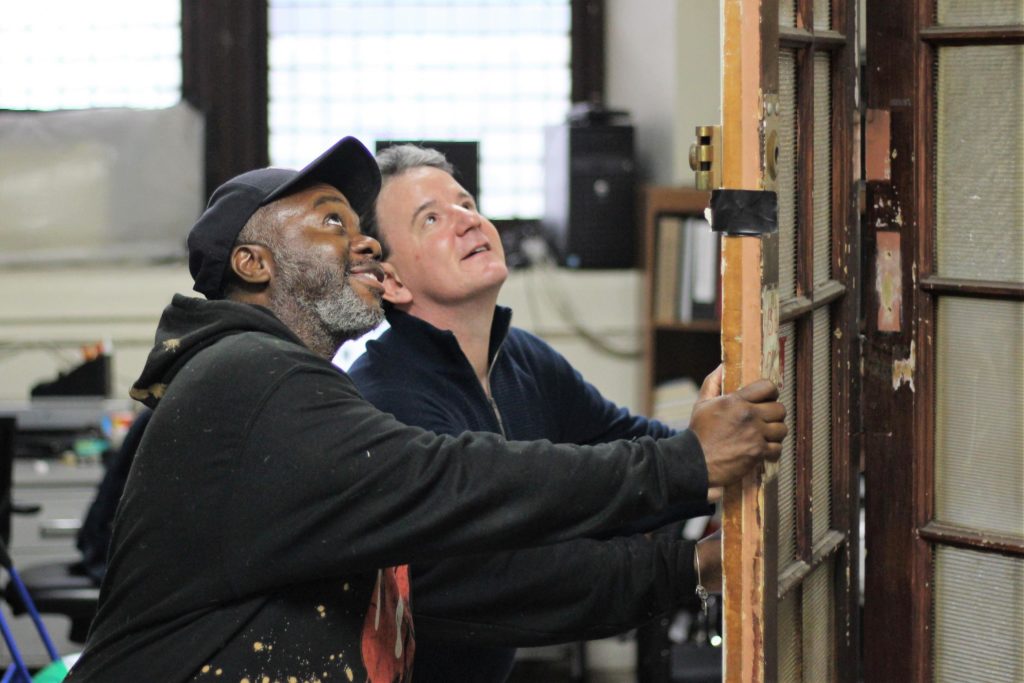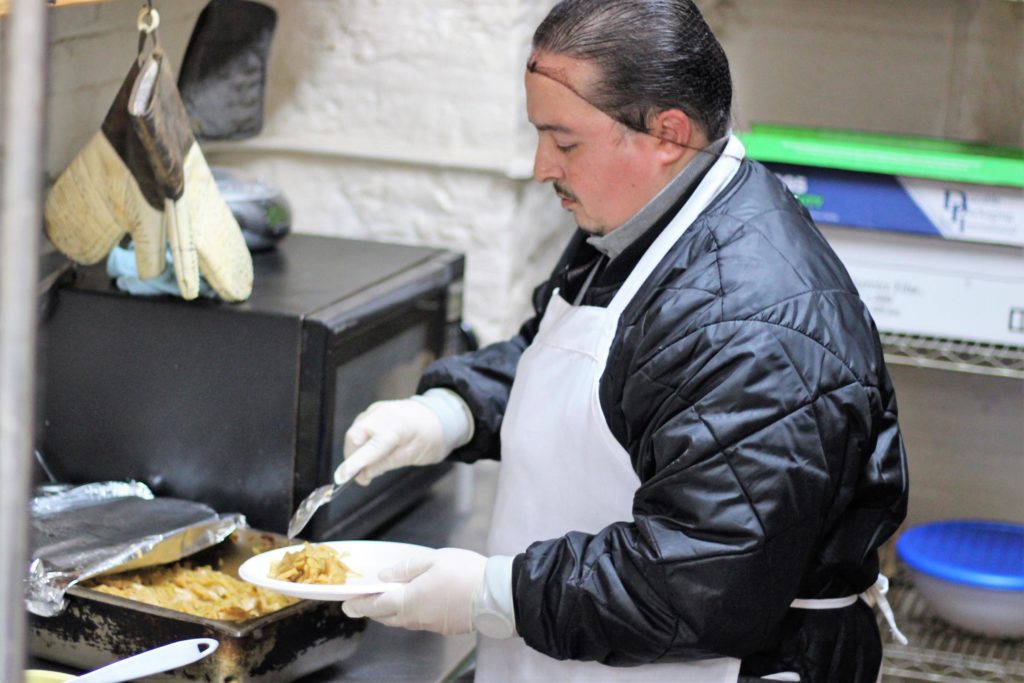

Eugene Suggs and Todd Renegar gaze upward as they carefully slide open a double folding door in the TOP clubhouse.
“This has been closed for probably decades,” says Todd Renegar, the program manager at TOP. “Look how it lets the light through!” They stop to admire their work, and indeed — with the doors between the office and the main common room open, the whole clubhouse feels bigger and brighter.
Opening the door is an exciting moment for TOP as it returns to its home following major renovations. But it’s also symbolic of what the program does —helping people with a history of mental illness open the door to new skills, new possibilities and new connections.
“I used to isolate myself,” says TOP member Miguel Correa. Now, he comes to the clubhouse every day because it offers “community and positive things to do.”
TOP meets five days a week, just like an ordinary business. Members work alongside staff to organize everything that happens, including making breakfast and lunch, ordering food and supplies, planning meals, tracking attendance, cleaning, answering phones, and scheduling social events and wellness activities. As members reconnect with the community and improve their work skills, TOP staffers help them get temporary employment placements to build their experience.
Correa is involved with office work and food preparation. He says he’s learned a lot: “My communication skills have grown. My vocabulary has grown. I’ve learned how to cook so the food is all ready at the same time, and cook in quantity because we have a lot of members.”
Linda Schonfeld has been a TOP member for six months. “At first it was hard because I was so used to not having any structure,” she says. “But I love it —being part of a group of people who have problems too, and understand me.
“I even have hope of being able to work. I wouldn’t have thought about that before.”
TOP meets in the basement of St. Ignatius of Antioch Episcopal Church on West 87th. Last fall, a burst pipe flooded their space, forcing them to relocate temporarily. After the damage was repaired, members descended on the clubhouse to clean and organize. They scrubbed tables and floors, carried old furniture out to the curb, reorganized the rooms, and made the space their own.
“This is like my second home,” says member Juan Gonzalez. “It’s like the place where you can be yourself.”
With its clubhouse spiffed up, TOP is looking to expand its numbers. Members must have an Axis I Diagnosis such as Depression, Schizophrenia, Schizoaffective or Bipolar Disorder. They also must have active Medicaid coverage. For more information, visit goddard.org/TOP.
Could more people benefit by joining TOP? “If they want to put the work in they can!” says Gonzalez.